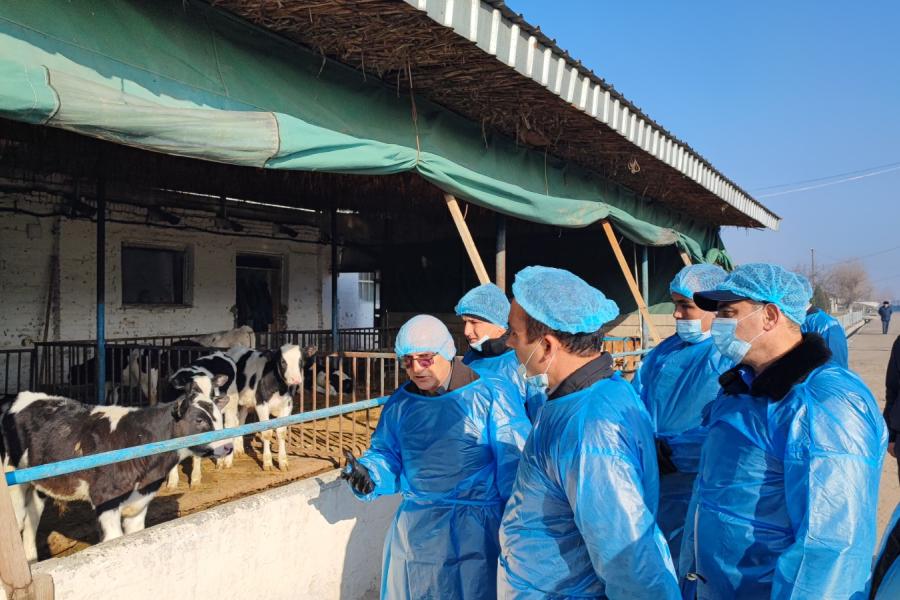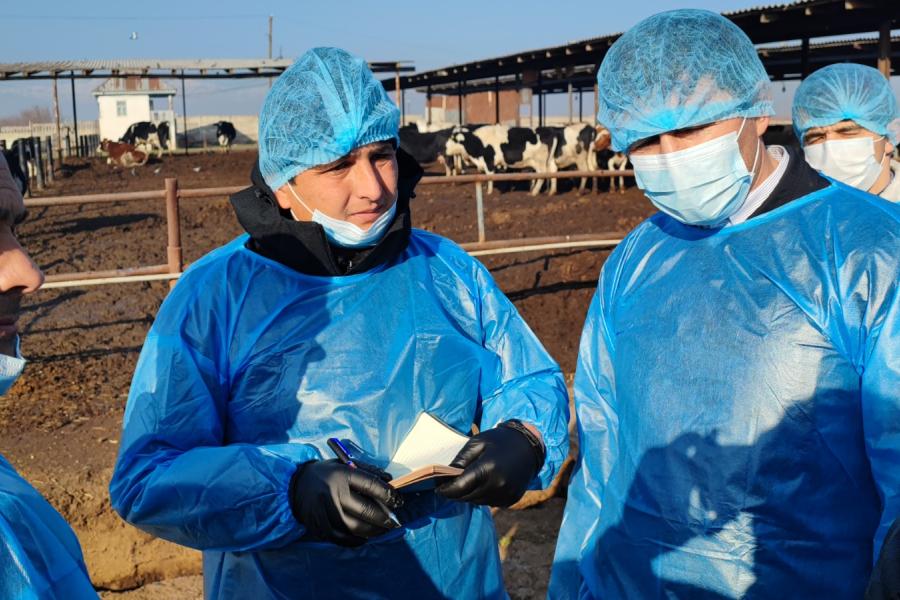USAID, FAO promotes best practices regarding biosecurity and biosafety in Tajikistan
26 December 2024
26 December 2024, Dushanbe – USAID and the Food and Agriculture Organization of the United Nations (FAO), in cooperation with the Committee for Food Security under the Government of the Republic of Tajikistan, conducted a three-day biosecurity training for veterinarians and farmers in Tajikistan on December 24-26, 2024. The training was part of a USAID-funded project to improve the country's capacity to diagnose zoonotic diseases and monitor antimicrobial resistance (AMR) in animals.

Held at local poultry and cattle farms, the training focused on promoting best practices regarding biosecurity for hygienic livestock production and strengthening the capacity of veterinary and agricultural professionals in undertaking biosecurity and biosafety measures. Through the adoption of comprehensive biosecurity measures and sustainable husbandry practices, including the identification of sources, pathways and factors influencing disease transmission and biosecurity gaps on poultry and cattle farms, the training equipped participants with the tools to protect both animal and public health and ensure safer agricultural practices in the country.
"The training is an important milestone in Tajikistan's efforts to strengthen its health systems and improve animal husbandry practices", said Aghasi Harutyunyan, FAO Representative ad interim in Tajikistan. "This USAID-supported activity will not only help prevent the transmission of zoonotic diseases, but also improve overall animal health, which is critical for public health, environmental protection and sustainable agriculture in Tajikistan", added Aghasi Harutyunyan.
Training participants learnt about the most effective biosecurity measures for cleaning and disinfecting facilities to control the spread of pathogens and reduce the risk of zoonotic disease transmission in the region.
In addition to theoretical training sessions, participants visited demonstration cattle and poultry farms to see practical examples of good animal husbandry and biosecurity practices. These demonstration farms serve as models for replicating effective biosecurity practices across the country, ensuring better animal health outcomes and reducing the risks associated with zoonotic diseases and AMR.

The USAID funded FAO project aims to strengthen Tajikistan's capacity to manage zoonotic diseases and antimicrobial resistance, both of which are major public health challenges. The project integrates the One Health approach, which recognizes the interconnectedness of human, animal, and environmental health, into national health strategies.
By promoting collaboration between the veterinary, agricultural, and public health sectors, the project helps improve surveillance and early detection of zoonotic diseases, ensuring timely responses to emerging threats.

